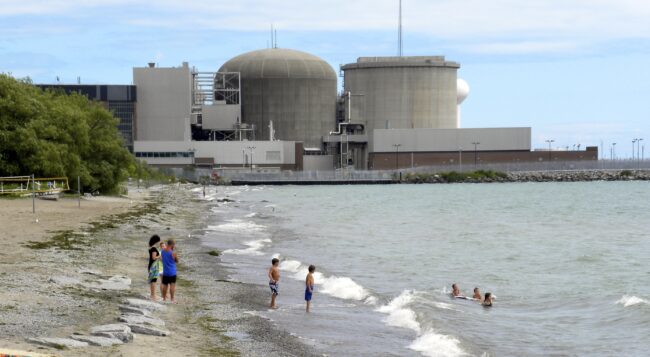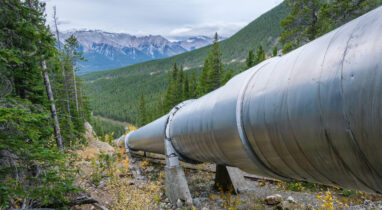New commercial nuclear reactors can be a significant contributor to achieving net-zero emissions in Canada by 2050. But two distinct problems are undermining nuclear’s potential: cost and policy uncertainty. A report released today by Clean Prosperity called Nuclear for a Net-Zero Canada outlines solutions.
“Ambitious nuclear policy doesn’t make sense without ambitious climate policy,” said Clean Prosperity Director of Policy and Strategy Brendan Frank, lead author of the new report.
“Canada only needs to build more nuclear reactors if we plan to achieve net-zero by electrifying our economy. Federal and provincial governments need ambitious climate policies to convince the market that growing demand for electricity will support the economic case for new reactors.”
“Ambitious nuclear policy doesn’t make sense without ambitious climate policy.”
Clean Prosperity Director of Policy and Strategy Brendan Frank
Nuclear power has valuable attributes for provinces seeking to electrify their economies and decarbonize their grids: nuclear reactors are long-lived, large-scale, high-capacity assets that produce zero-carbon electricity with low land-use requirements and manageable risks.
But nuclear energy has a problem with cost: commercial reactors have high upfront capital requirements and a global track record of cost overruns. At the same time, they face weak demand signals in electricity markets.
Electrification of Canada’s economy isn’t inevitable, which points to the second problem facing nuclear: policy uncertainty.
“Canada needs stable climate and energy policies at the provincial and federal levels to drive the levels of electrification that would justify significant nuclear buildout,” said Clean Prosperity Director of Federal of Government Relations and report-co-author Etienne Rainville.
Ontario is already home to 18 of Canada’s 19 commercial nuclear reactors, and has also progressed the furthest towards building new nuclear generation. The province is on track to complete a first-of-kind advanced nuclear reactor at the Darlington Nuclear Generating Station by 2029, and is proposing three more to follow at the same site, along with new reactors at Bruce Nuclear Generating Station. Alberta, New Brunswick, Quebec, and Saskatchewan have all expressed interest in building new commercial reactors.
“The on-budget and ahead-of-schedule refurbishments of existing reactors at the Darlington and Bruce stations offer promise that nuclear’s cost problem can be solved in the Canadian context,” said Clean Prosperity Director for Ontario and report co-author Kaisha Bruetsch. “But Ontario and other provincial governments need to do more if nuclear energy is to play a significant role in achieving net zero.”
Recommendations
Clean Prosperity’s report makes three recommendations to provincial and federal policymakers to address the problems of cost and policy uncertainty.
- Ambitious and stable policy: First, governments should commit to an ambitious and stable package of electrification and decarbonization policies that extend beyond 2035. In particular, provinces should set target dates for achieving a net-zero grid. They should also set clear timelines for fully exposing electricity generation to the industrial carbon price so that nuclear generation can compete on a level playing field with emitting sources of electricity.
- Reward results, not effort: Second, governments should, over time, shift away from financial supports for nuclear energy generation that reward effort — like investment tax credits — and towards supports that reward results. Results-based instruments include power purchase agreements, production tax credits, and contracts for difference.
- Fleet-based approaches: Third, governments should prioritize fleet-based approaches to nuclear power development that seek to build as few reactor types as possible, in large quantities. This will help new advanced reactors to become progressively less expensive to build over time. The first and best chance for a strong start to a potential nuclear renaissance is the successful completion, on time and on budget, of the advanced reactor under construction at Darlington.
Clean Prosperity’s report also looks at other challenges associated with nuclear energy buildout, like operational safety, waste management, and security. The report argues that these challenges are manageable, and secondary to the imperative of decarbonization.
Read the report
Photo credit: Jason Paris (CC)




